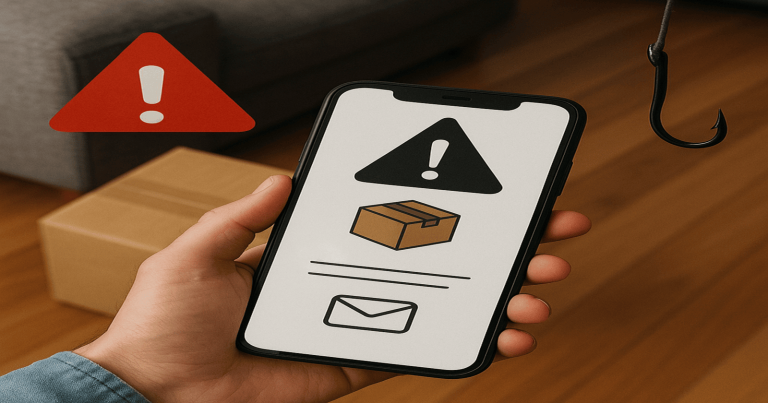The FedEx Scam is described as a series of fraudulent practices that have exploited the broad network of the global shipping and logistics giant to smuggle goods, deceive customers, and engage in other illegitimate practices. FedEx has not been the perpetrator of scams but has often fallen into the middle of various scams throughout the years, usually ending up as an accidental channel for fraudulent transactions. This article explores the FedEx Scam in its various forms, analyzing the impact that it has had on the company, legal consequences, and lessons businesses can learn to avoid such scams in the future.
What is the FedEx Scam?
FedEx Scam is simply the name for a large cluster of activities that use FedEx logistics and shipping services to carry out an illegal business. The term encompasses the smuggling of counterfeit products, the trafficking of illegal drugs, and various fraudulent activities with counterfeit shipping documents or undervaluation of goods.
FedEx is one of the world’s largest delivery service companies, operating a global network that handles millions of shipments daily. While the company itself adheres to high standards of security and transparency, its network is quite large, and the volume of transactions is too high for it not to be exploited by fraudsters. Criminals and perpetrators of illegal activity have utilized FedEx’s system to execute their activities, which are mostly clandestine.
Notable Examples of the FedEx Scam
For ages, there had always been scams involving FedEx services. Some of the most recent cases bring forth some vulnerabilities in the logistics and shipping industry. These were some high-profile FedEx scams:
1. The Counterfeit Goods Smuggling Scheme (2015-2017)
Most notorious among FedEx scams is trafficking fake luxury items such as handbags, electronics, and watches through FedEx’s international delivery hub. Fraudsters try to outwit customs using forged documents or undervalued shipments.
These fake goods were easily transported via FedEx’s vast international network and sold in black markets in distant lands. It took a long time for customs and law enforcement to monitor this activity and uncover the illegal dealings. It involved many individuals as well as other organized crime groups in numerous countries.
2. The Prescription Drugs Trafficking Scheme
In another incident of a well-known FedEx scam, illegal consignments of prescription drugs, including narcotics, were moved across international borders. Some individuals used this type of practice to ship legal narcotics illegally via FedEx’s international shipping service. Such activity usually went undetected until law enforcement officials started intercepting packages and tracking shipments back to the point of origin.
FedEx became a target of scrutiny in the United States after it was discovered that the delivery network was used to ship prescription drugs illegally, especially through unlicensed online pharmacies. The company faced legal challenges as the U.S. The Department of Justice investigated the extent of the illegal activities.
3. The “Drop Shipping” Fraud (2009)
The same racketeers pulled a “drop-shipping” scam in this case by using the FedEx network as follows: a person places a fictitious order for speciality items, like electronics or luxury goods, with the suppliers who are then required to ship them directly by FedEx to locations given for false end-users. The fraudsters would pocket the goods once delivered, leaving the suppliers and FedEx to handle the logistics.
In scams, FedEx would sometimes rely on the fact that it assumes that the individual picking up the shipment was the real customer; therefore, a number of shipments were allowed to leave FedEx facilities without being scrutinized thoroughly.
Why is FedEx a Target for Fraud?
Several factors make FedEx, as well as other global logistics companies, a prime target for fraud:
1. Vast Network and Scale
Fedex is running a gigantic network that delivers and transports items globally. It processes millions of parcels on a daily basis. So, it becomes easy to prey on those fraudulent elements who know it will be hard to question each of the shipments. In short, the large numbers of parcels make it an easy hideout for such anti-social elements.
2. Global Reach and Limited Oversight
FedEx operates on a wide range of international grounds, which exposes it to a variety of legal and regulatory standards. Scammers take advantage and capitalize on the variation in customs and security protocols among the various countries so that they can facilitate the illegal goods through the FedEx network, evading the stricter controls in some areas.
3. Focus on Timely Deliveries
FedEx is acclaimed for fast and reliable delivery. While delivering packages, that emphasis on speed may lose out on carefully inspecting packages, especially when it comes to smaller or lower declared-value shipments. Therefore, this creates loopholes in the system, which scammers capitalize on by sending counterfeit or illegal items whose scrutiny in customs and internal security systems would have probably missed thorough checking.
4. High-Value Shipments
FedEx also transports other high-value shipments, such as electronics, pharmaceuticals, and luxury goods. Such items attract criminals who want to benefit from the smuggling operation because they know they could get huge returns from the black market.
Legal and Financial Consequences of the FedEx Scam
FedEx no longer wants to be known as the FBI’s latest customer of crime. Despite such allegations, these scams have lately been tainting FedEx’s reputation and operations. It has lost several legal and financial battles as a consequence of facilitating the scandalous business to continue unchecked.
1. Fines and Penalties
On some occasions, FedEx has been penalized by regulatory bodies for tracking shipments inadequately or for its role in trafficking illegal items. For example, in the case of prescription drug trafficking, FedEx was sanctioned due to failure to comply with federal administration laws that regulate the transportation of controlled drugs.
2. Reputational Damage
FedEx never perpetrated these scams, but their aftermath did render the company somewhat tarnished in reputation. Investors, partners, and customers of FedEx are now questioning the protection method presumably employed for fraud prevention. Thus, FedEx had to embark on the road to reforms and convince its stakeholders about its commitment to security.
3. Strengthened Security Measures
These, among many other policies and procedures, were instituted by FedEx in response to the scourge that was defined as fraud. Some of those internal changes include very tight screening processes on international shipments, better customs compliance, and training of employees on how to identify fraudulent shipments.
How FedEx is Combatting Fraud Today?
The company had introduced defenses involving hijacking and further frauds applicable to their customers. These steps they put in place at FedEx are strong enough because of the extent and how they have been designed as follows:
1. Enhanced Shipment Monitoring
FedEx intended to increase surveillance on many packages, especially on international ones. The said company has embarked on sophisticated tracking that raises flags on suspicious shipments on the basis of content, destination, or inconsistencies in shipment details.
2. Collaboration with Law Enforcement
FedEx cooperates with law enforcement agencies across the globe to track and report suspicious activities. The company has been proactive in cooperating with customs and border control authorities to identify and intercept illegal goods before they enter the supply chain.
3. Investment in Technology
And lastly, FedEx has invested tremendous dollars and capital into technology, especially in its efforts to leverage AI and machine learning for fraud prevention. One of the things they are employing is analyzing data on shipments with algorithms to find patterns that may reveal wrongdoing. Automated systems help to speed up and streamline the flagging process for potentially illegal shipments.
The FedEx Scam is a reminder of the vulnerabilities existing in the global logistics and shipping industry. Even though FedEx itself is not responsible for the fraudulent activities discovered so far, its massive network and huge shipment volumes make it one of the easy-to-hack companies for thieves. FedEx has done quite a lot to strengthen security and lower the risk of fraud. This case is very important as a lesson to every business, regardless of their industry, about vigilance and due diligence in preventing and addressing fraud.
By enhancing internal controls, improving cooperation with law enforcement and investing in new technologies, FedEx strives to prevent the misuse of their services in the future by fraudsters.
FedEx Scam FAQs
What is the FedEx Scam?
The term “FedEx Scam” refers to a group of fraudulent operations whereby criminals use FedEx shipping services for illicit activity, namely, for the shipment of drugs, counterfeit goods, or other contraband. These fraudulent activities exploit FedEx’s global logistics network to smuggle goods while circumventing security checks or customs clearances.
Has FedEx committed any criminal acts?
FedEx itself is not a crime-committer. Nevertheless, because of its vast network of logistics, it has been used by criminals at times to import forbidden or illicit goods or carry out other forbidden activities. In the instances of prescription drug trafficking and smuggling of counterfeit products, FedEx was inadvertently used as a facilitator of these frauds.
What would be the strategy laid down for prevention from fraud by FedEx?
FedEx also uses security measures like better tracking, stricter screening, and cooperation with foreign law enforcement agencies to detect and prevent fraud. The company invested in the most advanced technology, including AI, which keeps surveillance of suspicious shipments and enhances fraud detection efforts.
How did the counterfeit goods scam run using FedEx?
In scams related to counterfeit products, scammers utilize FedEx’s shipping facilities to transport imitation high-end products, including watches, purses, and electronics, across international borders. These products were usually camouflaged under normal shipments, with false documentation underpaid to avoid customs checks. FedEx’s large network of routes rendered it challenging to identify such fake operations until law enforcement came in.
What are FedEx’s legal repercussions against scams?
Although FedEx is not necessarily liable for the fraud, it has been fined and penalized by regulatory agencies for its failure to prevent the shipping of illicit items. In a limited number of instances, the firm was penalized for non-adherence to shipping rules, particularly with respect to the illegal shipping of prescription drugs. In order to counter this, FedEx has collaborated extensively with law enforcement agencies and strengthened its internal security measures.


